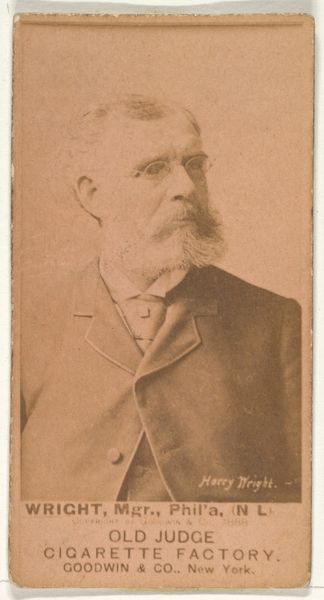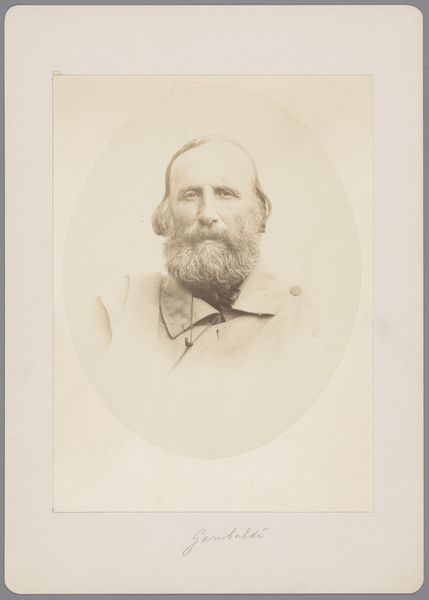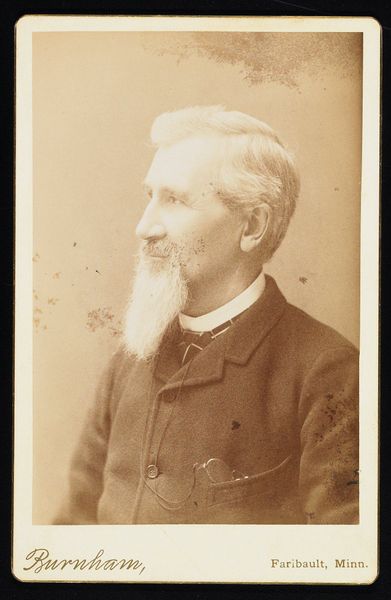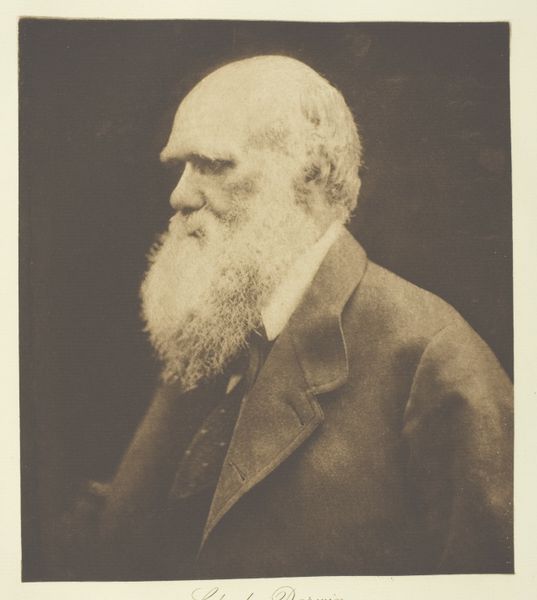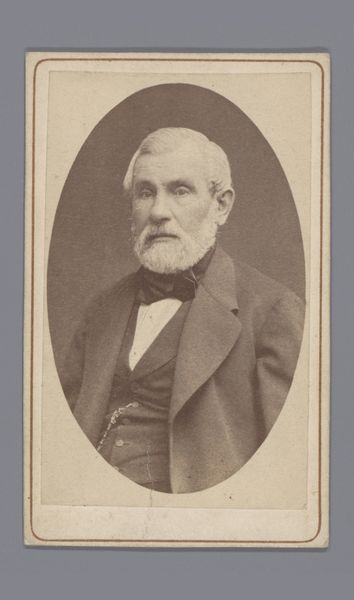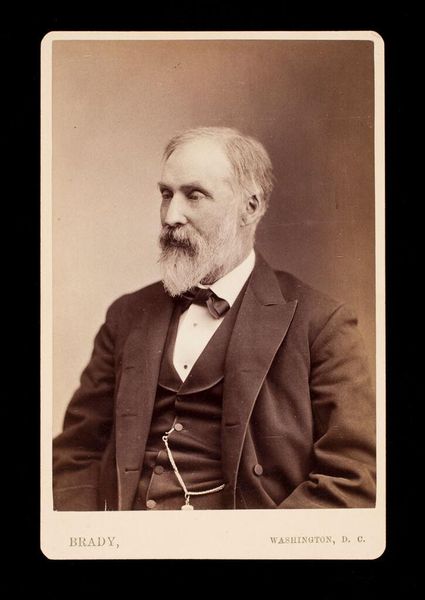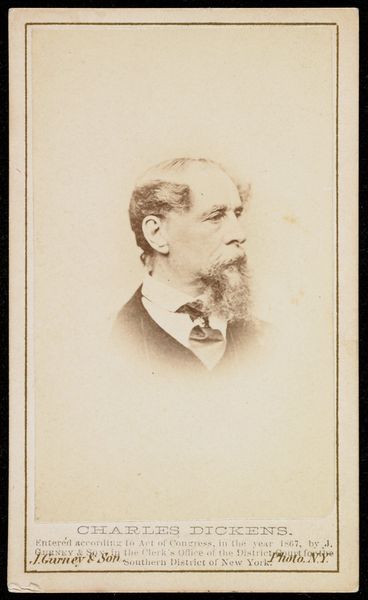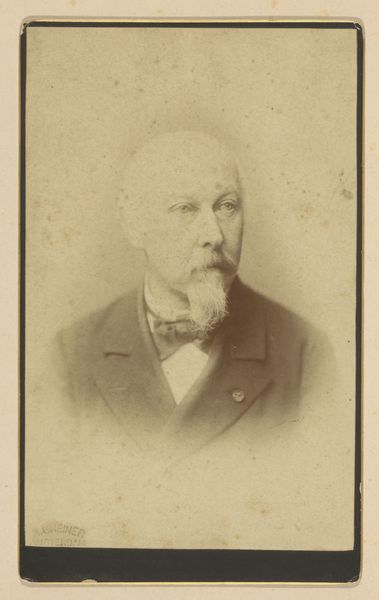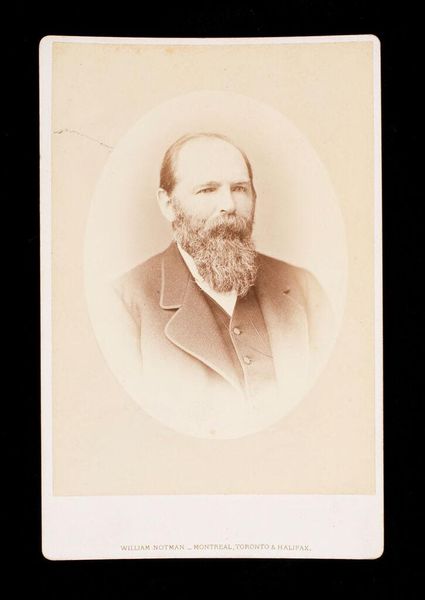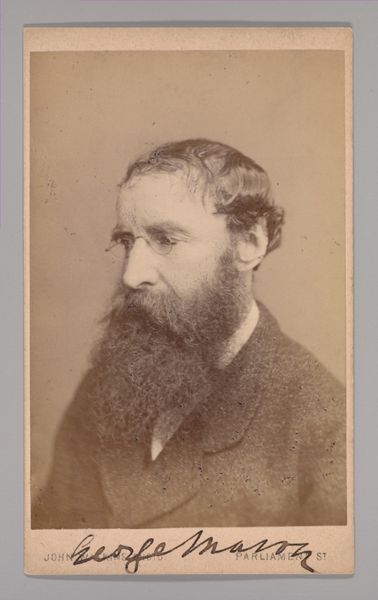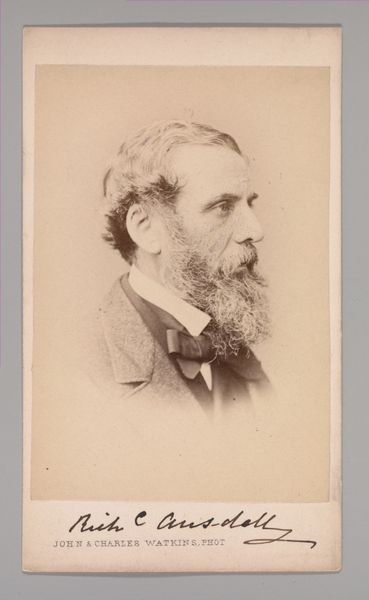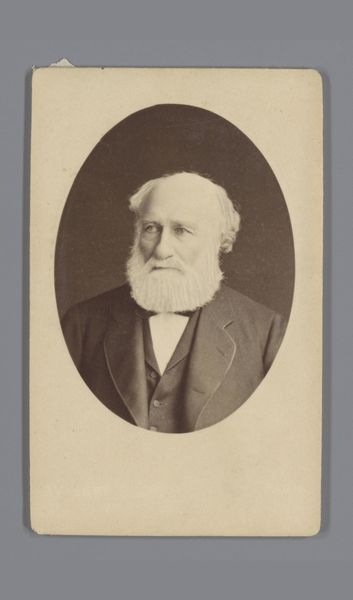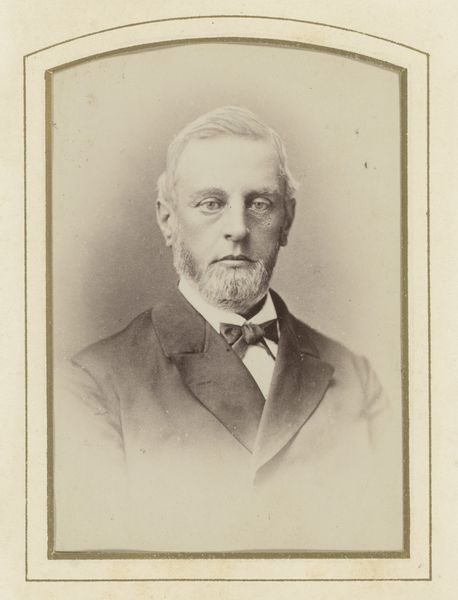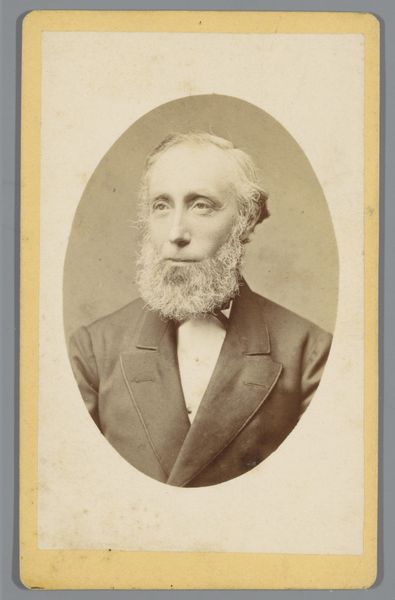
photography
#
portrait
#
photography
#
portrait photography
Copyright: Rijks Museum: Open Domain
This photograph, created by Napoleon Sarony, involves the wet collodion process, a popular method in the 19th century. This technique required coating a glass plate with chemicals, exposing it in the camera while still wet, and then developing it immediately. Consider the labor involved: the photographer, the studio assistants, and even the sitter, who had to remain still for an extended period. The final print, mounted on card stock, reflects a burgeoning consumer culture, where images were becoming increasingly accessible and commodified. Sarony was a master of self-promotion, branding his studio with elegant typography and a reputation for photographing celebrities. Photography, often seen as a purely mechanical process, required considerable skill and artistry, blurring the lines between art and craft. The material qualities of the photograph – its sepia tone, its smooth surface, its crisp detail – all speak to the hand of the maker and the social context in which it was created. By acknowledging the labor and materials involved, we can gain a deeper appreciation for this seemingly simple image.
Comments
No comments
Be the first to comment and join the conversation on the ultimate creative platform.
